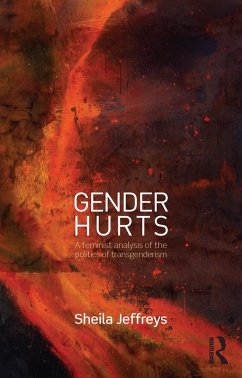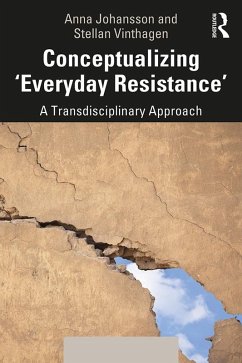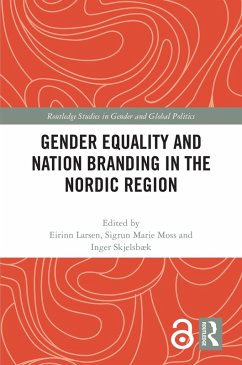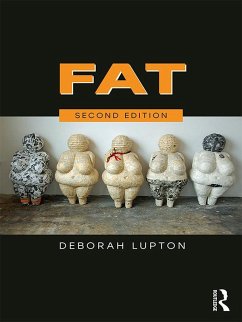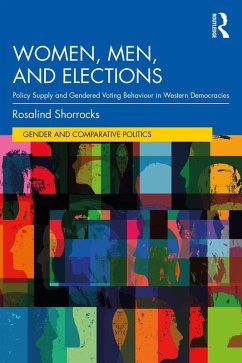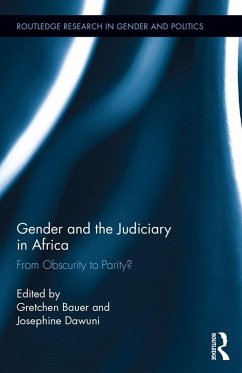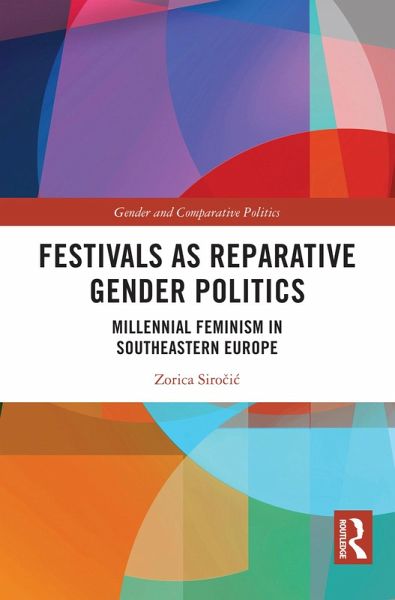
Festivals as Reparative Gender Politics (eBook, PDF)
Millennial Feminism in Southeastern Europe
Versandkostenfrei!
Sofort per Download lieferbar
39,95 €
inkl. MwSt.
Weitere Ausgaben:

PAYBACK Punkte
20 °P sammeln!
What explains the popularity and widespread appeal of numerous post-Yugoslav feminist and LGBTQ+ festivals in the last decade? This book argues that the millennial generation expresses "reparative politics", as a distinct type of activism, through festivals.Reparative political acting, as identified here, characteristically relies on playfulness and creativity, interpretative (gender) dissent, acceptance of organizational and programmatic messiness and hybridity, belonging, and positive affect. The reparative politics is vital in a context that is marked by an individual and collective trauma ...
What explains the popularity and widespread appeal of numerous post-Yugoslav feminist and LGBTQ+ festivals in the last decade? This book argues that the millennial generation expresses "reparative politics", as a distinct type of activism, through festivals.
Reparative political acting, as identified here, characteristically relies on playfulness and creativity, interpretative (gender) dissent, acceptance of organizational and programmatic messiness and hybridity, belonging, and positive affect. The reparative politics is vital in a context that is marked by an individual and collective trauma of heteropatriarchy, violent breakdown of the common state, and post-transitional economic precarity. The book uses excerpts from programs, interviews and observations collected through the multi-sited ethnographic research. Sirocic's focus on contemporary activism in Southeastern Europe challenges the narrow geopolitical understanding of the recent feminist politics and refutes the common assumptions of a passive millennial generation. Yet, the book's relevance surpasses its area of study, as it argues against the popular deriding of "artivist" expressions as the "merely cultural" or "merely aesthetic" engagement. In contrast, the book claims that such activities urge a redefined understanding of political agency.
Festivals as Reparative Politics demonstrates that contemporary feminist festivals represent a distinct reformulation of contentious politics of gender whose constitutive principles can be exemplary for other types of political engagements.
Reparative political acting, as identified here, characteristically relies on playfulness and creativity, interpretative (gender) dissent, acceptance of organizational and programmatic messiness and hybridity, belonging, and positive affect. The reparative politics is vital in a context that is marked by an individual and collective trauma of heteropatriarchy, violent breakdown of the common state, and post-transitional economic precarity. The book uses excerpts from programs, interviews and observations collected through the multi-sited ethnographic research. Sirocic's focus on contemporary activism in Southeastern Europe challenges the narrow geopolitical understanding of the recent feminist politics and refutes the common assumptions of a passive millennial generation. Yet, the book's relevance surpasses its area of study, as it argues against the popular deriding of "artivist" expressions as the "merely cultural" or "merely aesthetic" engagement. In contrast, the book claims that such activities urge a redefined understanding of political agency.
Festivals as Reparative Politics demonstrates that contemporary feminist festivals represent a distinct reformulation of contentious politics of gender whose constitutive principles can be exemplary for other types of political engagements.
Dieser Download kann aus rechtlichen Gründen nur mit Rechnungsadresse in A, B, BG, CY, CZ, D, DK, EW, E, FIN, F, GR, HR, H, IRL, I, LT, L, LR, M, NL, PL, P, R, S, SLO, SK ausgeliefert werden.





